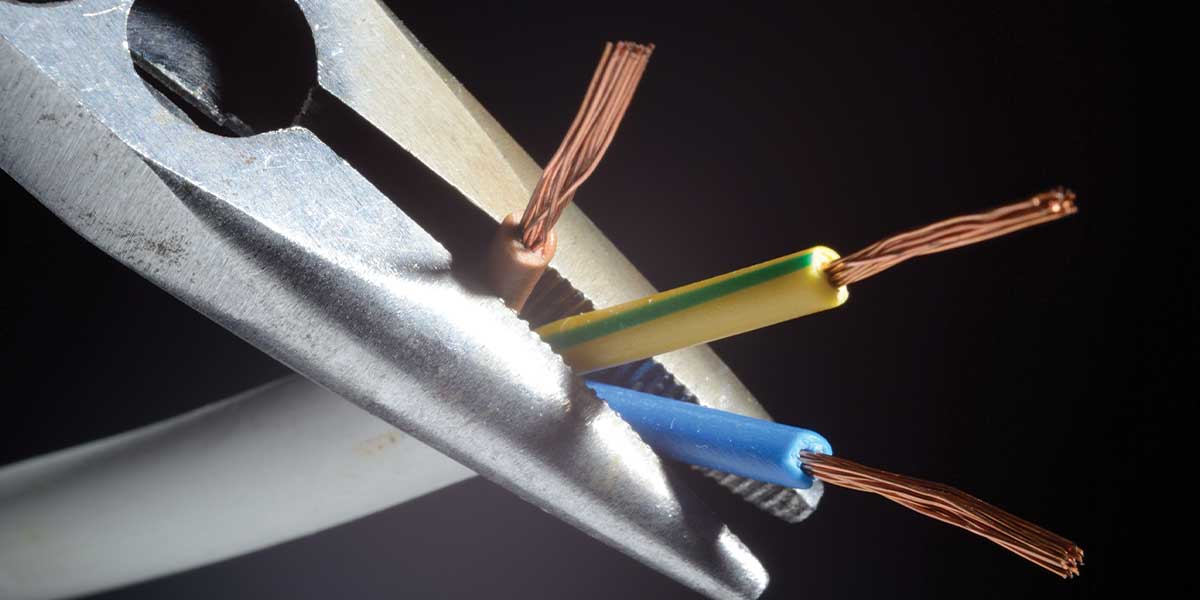In the 1950s through the 1970s, many Canadian homes were outfitted with aluminum wiring due to the rising cost of copper. At the time, aluminum was seen as a cost-effective and highly conductive alternative, making it a popular choice among builders. Unfortunately, it was later discovered that aluminum wiring is not as safe as copper wiring, presenting multiple electrical hazards that can compromise both home safety and long-term property value.
As leading providers of residential electrical services across British Columbia, the team at Expert Electric has created this in-depth guide on aluminum wiring. Here, you’ll learn about the dangers of aluminum wiring, signs your home may have it, and what to do if your house is wired with aluminum.
Why Aluminum Wiring Was Used
During the mid-20th century, copper prices skyrocketed. To cut costs, builders turned to aluminum. It was lighter, cheaper, and easier to work with. On paper, aluminum wiring seemed like a win. But over time, the weaknesses of aluminum became evident. Unlike copper, aluminum is softer, expands and contracts under heat, and corrodes in ways that interrupt safe electrical flow.
This combination of factors made aluminum wiring a serious fire hazard, especially in homes where the wiring has not been inspected or updated for decades.
The Dangers of Aluminum Wiring
When people renovate or purchase older homes, one of the first questions they ask is: “What’s behind these walls?” For homes built in the mid-20th century, there’s a strong chance that aluminum wiring is still in place.
Common Hazards of Aluminum Wiring
Despite its cost savings, aluminum wiring presents several issues:
-
Softness: Aluminum wiring is much softer than copper, making it easier to nick, cut, or damage during installation or repairs.
-
Corrosion: When aluminum corrodes, it loses conductivity. Copper corrosion, on the other hand, can still conduct electricity. With aluminum, the flow of electricity can be disrupted entirely.
-
Expansion & Contraction: Aluminum expands when heated and contracts when cooled. Over time, this loosens wire connections, increasing the risk of arcing and electrical fires.
-
Overheating: These combined factors make aluminum wiring far more prone to overheating, sparking, and igniting nearby materials.
In fact, according to the U.S. Consumer Product Safety Commission (CPSC), homes with aluminum branch circuit wiring are 55 times more likely to have fire hazard conditions compared to copper-wired homes.
Warning Signs of Aluminum Wiring
If you’re unsure whether your home has aluminum wiring, keep an eye out for these red flags:
-
Flickering or dimming lights without a clear cause.
-
Electrical outlets or light switches that feel warm or show discoloration.
-
Sparks, smoke, or unusual smells when plugging in devices.
-
Frequent breaker trips or blown fuses.
While these issues may seem like everyday annoyances, they could be early warning signs of a larger danger lurking within your walls.
What to Do if Your Home Has Aluminum Wiring
Discovering aluminum wiring in your home doesn’t automatically mean disaster—but it does mean you should act quickly. Here are your options:
1. Have a Licensed Electrician Inspect Your Wiring
A professional electrician can confirm whether your home has aluminum wiring and evaluate its condition. At Expert Electric, we specialize in electrical inspections and will give you a clear, actionable plan to keep your home safe.
For homeowners in Vancouver, it’s also valuable to learn from other trusted local experts. Wicks Electric explains what Vancouver homeowners need to know about aluminum wiring, offering additional insight into why inspection and professional upgrades are so important.
2. Consider Copper Pigtailing
One common solution is a technique called pigtailing. This involves connecting short lengths of copper wire to the ends of the existing aluminum wiring at outlets, switches, and fixtures. The copper provides a safer, more stable connection while leaving the aluminum in place behind the walls.
3. Full Rewiring
For long-term safety and peace of mind, a complete rewiring of the home with copper is the most effective option. Though this is more costly, it ensures your electrical system meets modern standards and eliminates fire hazards associated with aluminum.
4. Upgrade Panels & Connections
Even if full rewiring isn’t possible right away, upgrading your electrical panel, outlets, and switches to aluminum-safe devices is a smart first step. This reduces risks until a larger project can be completed.

Other Electrical Hazards in Older Homes
Older homes offer character, charm, and value, but they often hide outdated electrical systems. In addition to aluminum wiring, here are other common hazards you should know about:
Knob & Tube Wiring
This system, used in homes built in the early 1900s through the mid-20th century, lacks grounding and moisture protection. It was never designed for the electrical demands of today’s appliances and electronics. Overloaded circuits and cracked insulation make it a serious fire hazard.
Improper DIY Wiring
Over the years, many homeowners have attempted their own electrical upgrades or additions. Without professional installation, these can result in tangled, unsafe wiring that poses hidden risks behind the walls.
Outdated Electrical Panels
Panels installed decades ago often can’t handle the load of modern homes. If your breakers trip constantly, it’s a sign that your panel and potentially your wiring, needs an upgrade.
Bringing Your Home Up to Electrical Code
Building codes may feel like red tape, but they exist for one reason: safety. Just as a strong foundation supports your home’s structure, safe electrical systems protect your property and family.
Critical Areas to Address
Focus on the highest-risk areas first:
-
Bathrooms: High humidity can corrode outlets and wires.
-
Kitchens: Heavy appliance usage demands properly grounded circuits.
-
Additions: Any room added after the original build should be inspected for safe wiring connections.
Professional Electrical Inspection
The most reliable way to confirm your home is safe is through a full inspection by a licensed electrician. At Expert Electric, we know exactly what to look for when it comes to aluminum wiring, knob and tube systems, and outdated panels.
FAQs About Aluminum Wiring
1. How do I know if my home has aluminum wiring?
Look for “AL” or “ALUMINUM” markings on wires connected to your electrical panel, outlets, or switches. A licensed electrician can confirm for sure.
2. Is aluminum wiring illegal in Canada?
No, aluminum wiring is not banned, but it is no longer used in residential branch circuits due to safety concerns. Existing aluminum wiring should be inspected and updated for safety.
3. Can aluminum wiring be made safe without replacing it?
Yes. With methods like copper pigtailing and using aluminum-rated devices, risks can be minimized. However, full rewiring is the safest long-term solution.
4. Does aluminum wiring affect home insurance?
Yes. Some insurers charge higher premiums or may even refuse coverage for homes with aluminum wiring unless it’s been inspected and updated by a licensed electrician.
5. How much does it cost to fix aluminum wiring?
Costs vary depending on the size of your home and whether you choose pigtailing or full rewiring. An inspection from Expert Electric will give you an accurate estimate.
Final Thought
Aluminum wiring was once considered a modern solution, but today it’s a ticking time bomb hidden inside thousands of Canadian homes. If your house was built between the 1950s and 1970s, there’s a good chance it contains aluminum wiring. Don’t leave your family’s safety up to chance, schedule a professional electrical inspection.
At Expert Electric, our licensed electricians have decades of experience helping homeowners identify, repair, and replace aluminum wiring. From copper pigtailing to complete rewiring, we’ll ensure your home meets modern safety standards.
Contact Expert Electric
Ready to secure your home against the dangers of aluminum wiring? Get in touch today:
📞 Call Us: 604-681-8338
📧 Email Us: info@expertelectric.ca

